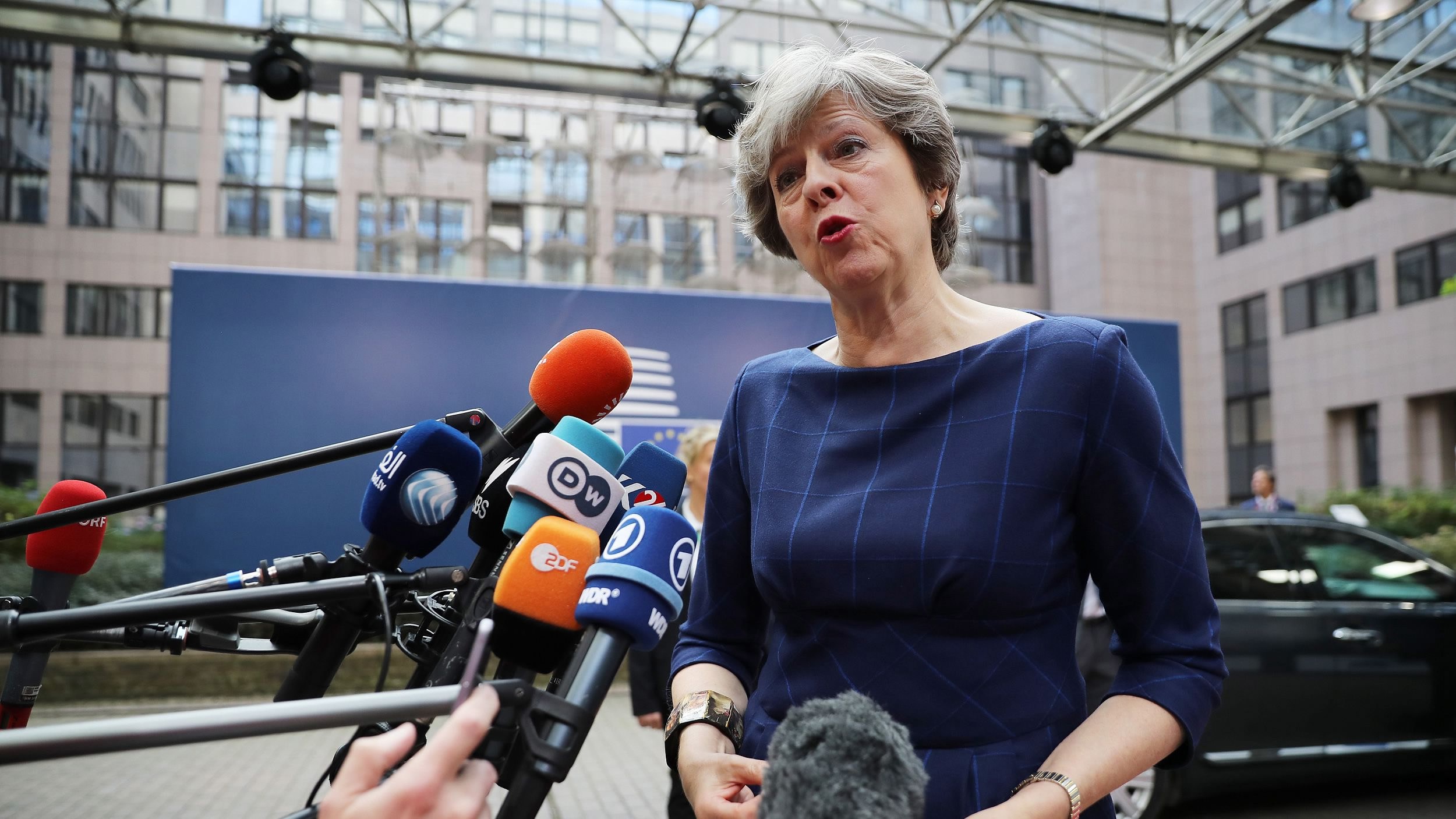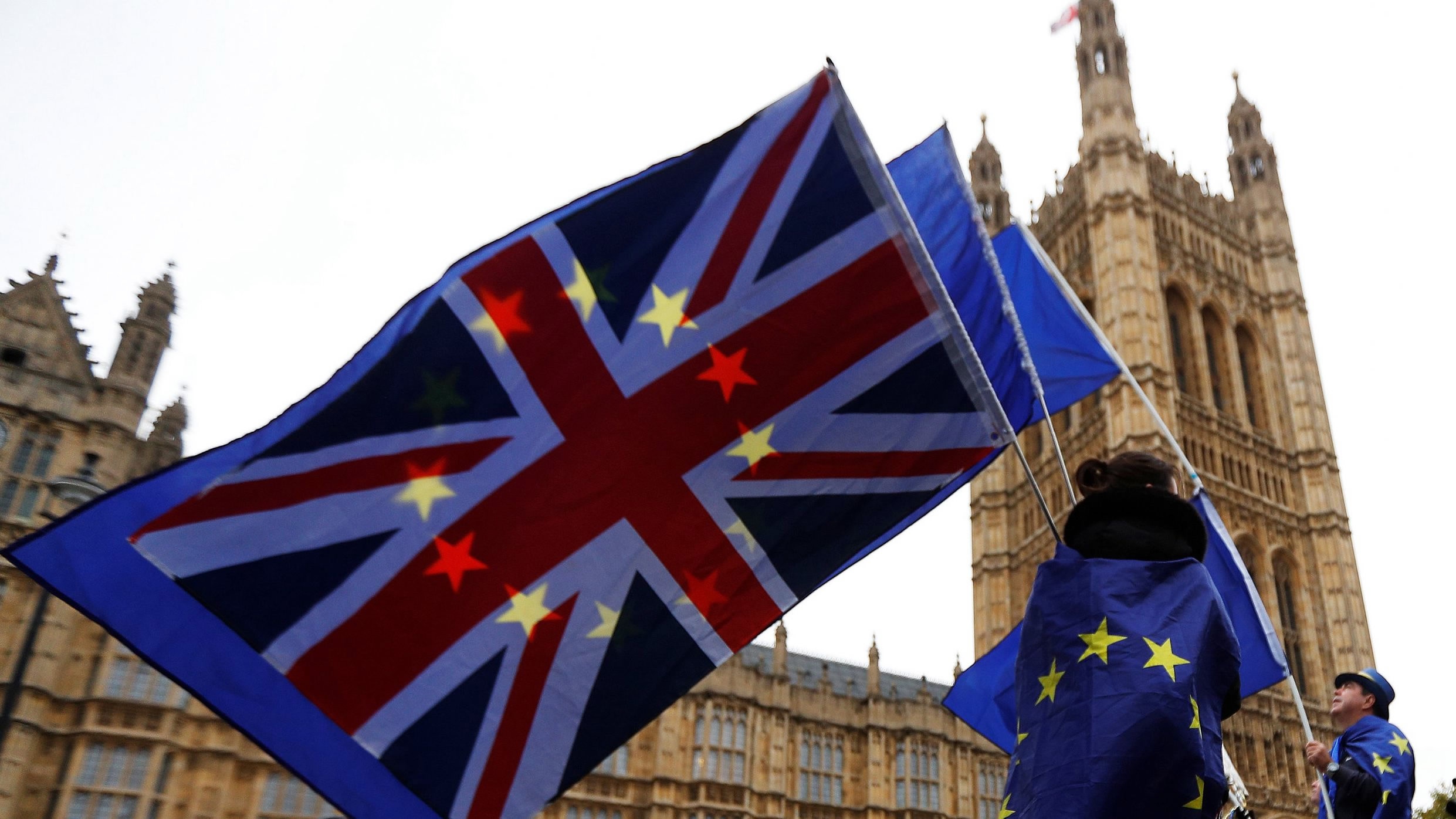
Politics
10:48, 15-Nov-2017
May's Brexit deadline to be challenged by her own MPs
CGTN

British Prime Minister Theresa May's Brexit deadline faced opposition from her own Members of Parliament (MPs) on Tuesday.
May's deadline chose March 29, 2019 as the official date for the UK and the European Union (EU) to part ways.
As MPs started their marathon debate on the EU Withdrawal Bill in the House of Commons, behind the scenes a number of Conservative MPs were meeting party managers to call for the government to scrap its strict timeline.
London-based newspapers reported that the number of MPs prepared to vote against the prime minister was in double figures, pointing to a humiliating defeat for May if they carry out their threat.
The Independent reported that former Education Secretary Nicky Morgan and another former government minister, Anna Soubry, were among the rebels.

UK former Education Secretary Nicky Morgan /VCG Photo
UK former Education Secretary Nicky Morgan /VCG Photo
Morgan, reported the Independent, said May's plan showed she was "tone deaf and tin eared," while Soubry told journalists she had warned May that there were some Conservative MPs who have never rebelled in their political careers but were now talking, for the first time ever, of rebelling against the government.
Former government attorney general Dominic Grieve said in the debate that setting the date of departure from the EU would hit the government's ability to carry out negotiations with Brussels.
The vote on the timeline is not taking place today, but Grieve said when the vote does take place he will vote against the government, adding that no arm twisting will persuade him otherwise.
Veteran politician and former cabinet minister Ken Clarke also criticized the government for tying down the date of departure to the second.
He claimed May's motive was as a sop to two of her pro-Brexit cabinet ministers Boris Johnson and Michael Gove. Clarke claimed a fixed departure date could positively harm the national interest.
Government ministers have insisted that setting a precise departure date will give clarity so everyone will understand the timetable.
The government did win the vote Tuesday night on the first major amendment to the Brexit Bill. It means that the government bill passed in 1972 that took Britain into what was then the European Economic Community (EEC), will be legally repealed at the moment Britain leaves the bloc after more than 40 years of membership. MPs voted in favor by 318 votes to 68, a majority for the government of 250.
The Withdrawal Bill is now undergoing line-by-line scrutiny in the House of Commons as part of a process to turn it into law. Almost 500 amendments have been lodged in a multitude of attempts to change the bill.

Anti-Brexit protesters wave EU and Union flags outside the Houses of Parliament in London, Britain, November 14, 2017. /VCG Photo
Anti-Brexit protesters wave EU and Union flags outside the Houses of Parliament in London, Britain, November 14, 2017. /VCG Photo
There will be several weeks of debate before the bill is handed to the unelected House of Lords where it will again face challenges in what could be an even tougher ride.
The Brexit Bill is a crucial measure to enable all EU laws to be consumed into British law when the two part company.
Brexit supporters say they fear pro-Remainers see the course of this legislation as an effort to fight the risk Britain leaving the EU with no deal, and with no agreement on free access to the EU market or the customs union.
MPs have been warned there will be numerous late-night sittings of parliament in the Houses of Parliaments in the coming weeks to steer the legislation through the various processes.
Source(s): Xinhua News Agency

SITEMAP
Copyright © 2018 CGTN. Beijing ICP prepared NO.16065310-3
Copyright © 2018 CGTN. Beijing ICP prepared NO.16065310-3